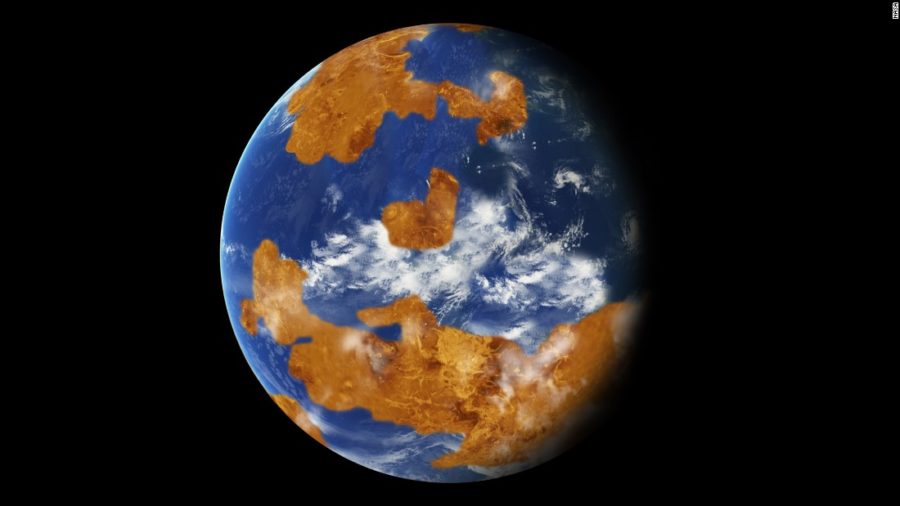New studies reveal surprises about Venus
Two weeks ago, Dr. Michael Way, study author at the Goddard Institute of Space Science, presented a study at the European Planetary Science Congress, which suggests that the planet Venus could have supported liquid water on its surface for at least 3 billion years of its existence, a majority of its existence since it was believed to have formed 4.5 billion years ago, an idea going back to a 2016 study by Way and the Pioneer missions in the 1980s.
The first time it was suggested that Venus could have sustained an ocean was theorized after 1980s NASA mission called Pioneer. However, considering how close the planet is to the sun, it was not thought to be possible.
Still, Way published a study in 2016 on the topic of the climate and oceans on Venus in its past, and this all led up to his presentation of his most recent study to the European Planetary Science Congress – Division for Planetary Sciences Joint Meeting 2019 in Geneva.
The study compared five climate simulations of Venus’s past, all of which suggested that the planet may have sustained liquid water and a climate similar to that of Earth for at least 3 billion years.
These conditions changed, however, between 700 and 750 million years ago, when something caused the rocks on the surface to release carbon dioxide. This, in combination with the increased evaporation of water, would have caused a harsh greenhouse gas effect. This may have been the work of volcanic eruptions that altered its topography.
“Something happened on Venus where a huge amount of gas was released into the atmosphere and couldn’t be re-absorbed by the rocks. On Earth we have some examples of large-scale outgassing, for instance the creation of the Siberian Traps 500 million years ago which is linked to a mass extinction, but nothing on this scale. It completely transformed Venus,” Way said to CNN.
The scientists want to gather more information on Venus now, including the speed of its cooling after formation, and if this greenhouse gas effect was a one-time occurrence or if it was one in a series of events. They say this opens up opportunities for planets outside the solar system, found similar distances away from their stars as Venus is, otherwise known as being in the ‘Venus Zone’.

I am a senior at NHS. I took Journalism because it sounded fun and I like to read articles. After high school I want to be an artist or entertainer.













